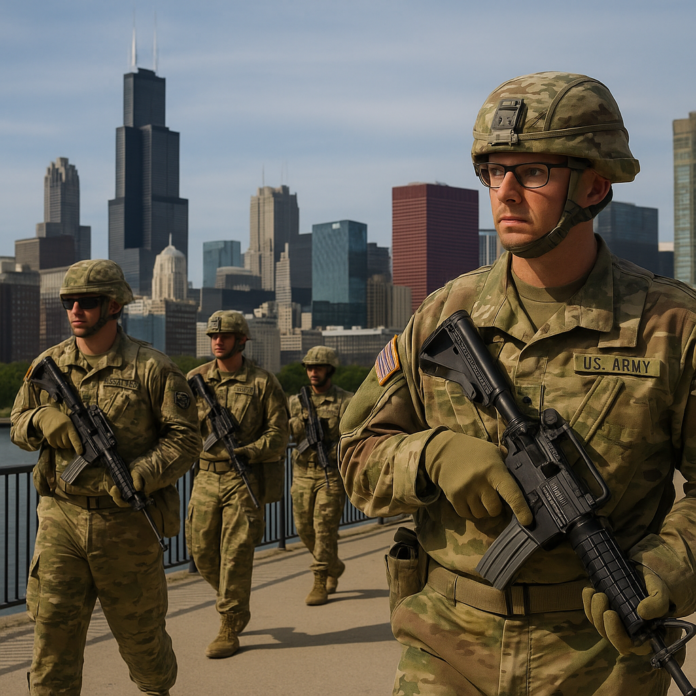
Illinois leaders are pushing back against President Donald Trump’s proposal to send National Guard troops to Chicago, calling it an overreach of federal authority and unnecessary for a city they say is already making progress in reducing crime.
Governor J.B. Pritzker said in a weekend statement that there is no emergency warranting such a move, accusing the president of creating a crisis for political purposes. He argued that Illinois’ public safety policies are working, pointing to recent decreases in homicides and violent crime in Chicago. The governor added that deploying troops in civilian settings undermines trust and distracts from investments in housing, education, and community safety programs that state and city officials view as more effective.
Chicago Mayor Brandon Johnson echoed those concerns, saying the city has not been formally notified of any federal plan but is preparing legal responses should the White House attempt to act unilaterally. Johnson warned that bringing in the military could undo recent progress in building cooperation between residents and police. He emphasized that federal funding for violence prevention and community programs would be more helpful than troops on city streets.
Trump, speaking from the White House on Friday, described Chicago as unsafe and pledged to make it the next city after Washington, D.C., to see an influx of National Guard forces. He said many residents were urging him to intervene and portrayed the measure as part of a broader campaign to combat crime, homelessness, and illegal immigration in urban areas run by Democrats.
About 2,000 Guard members are already stationed in Washington, D.C., where they were initially deployed without weapons but are now authorized to carry them. Federal officials have said the troops are not carrying out police duties but are stationed near landmarks and transportation hubs. Trump has claimed their presence brought “total safety” to the capital and suggested he could declare a national emergency to extend their mission beyond the current 30-day authorization.
Illinois officials strongly dispute the need for similar measures in Chicago. Attorney General Kwame Raoul said the state already works closely with federal agencies such as the FBI and DEA on investigations and prosecutions, but argued that turning the military against civilians erodes public confidence. He also criticized the administration for threatening to cut federal crime-victim funding while claiming to prioritize safety.
Local leaders note that Chicago police statistics show double-digit drops in homicides, robberies, and shootings over the past year. They attribute these improvements to targeted policing strategies and neighborhood investments, not federal intervention. Religious and community figures have warned that outside troops could inflame tensions rather than reduce them.
Trump has insisted that large cities under Democratic leadership suffer from mismanagement and lawlessness, and he has repeatedly singled out Chicago. Legal experts, however, point to the Posse Comitatus Act, which generally bars the military from performing domestic policing functions, though presidents have some authority under federal law to activate the Guard in certain situations.
With speculation about a potential deployment continuing, Illinois officials say they are preparing to challenge any attempt they consider unlawful. Pritzker summarized his stance by saying the state would defend its sovereignty and prioritize strategies that strengthen communities, rather than accept what he views as politically driven displays of military power.
This image is the property of The New Dispatch LLC and is not licenseable for external use without explicit written permission.